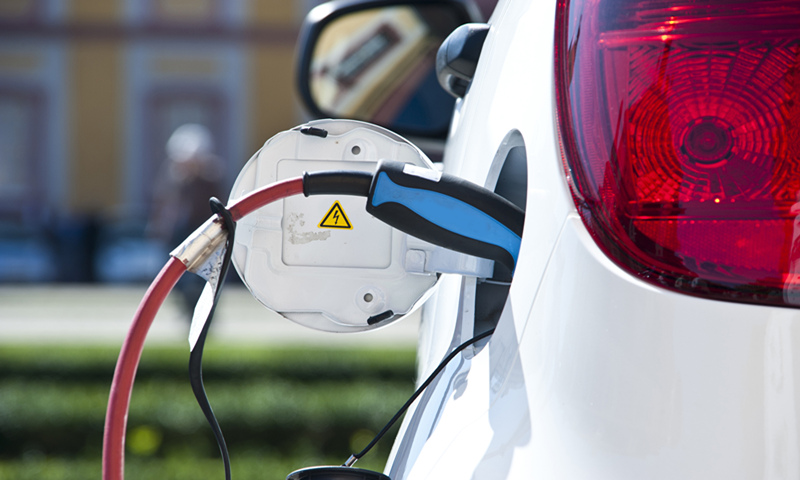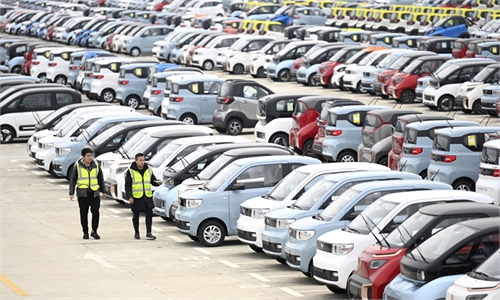
A NEV is charging. Photo: VCG
China is considering extending the subsidy for new energy vehicles (NEV) which is scheduled to be in place until the end of 2022, according to a Reuters report on Wednesday. Industry watchers suggested that it might be too early to discuss the plan for next year, but there will be multiple measures to boost pandemic-hit auto market.
Cui Dongshu, secretary general of the China Passenger Car Association (CPCA) told the Global Times on Thursday that China's vehicle sales will recover to normalcy as the latest coronavirus outbreak is controlled, which lead to supply chain backlog and declined consumer spending.
"There are seven months for the dynamics of the market to recover, and it is too early to discuss the policy whether it will be implemented in the next year or not," Cui noted.
Reuters on Wednesday reported that Chinese authorities are in talks with automakers over extending the costly subsidies for NEVs that were set to expire in 2022, citing three people familiar with the matter.
The share price of multiple domestic auto enterprises, including Great Wall Motor, Anhui Jianghuai Automobile Group and Haima Automobile Co all rose significantly over recent days.
However, an industry insider surnamed Chen in Shenzhen, South China's Guangdong Province, told the Global Times on Thursday that the report of subsidy extension was not unfounded.
"The overall auto sales in April was half that of March, the market needs a jolt to recover from latest Covid-19 outbreak," she noted.
Feng Shiming, a Shanghai based independent car analyst told the Global Times on Thursday that even though relevant department has not released any information about the report yet, any supportive measures to boost the sale volume will be welcomed by the industry.
Data from CPCA revealed that China's passenger car distribution and wholesale volume in April declined by 35.7 percent and 43.2 percent, respectively. "Such a large-scale decline is almost unheard of, which was caused by the coronavirus and global lack of auto chips," Feng noted.
Feng suggested that China's NEV industry is an important sector to compete with foreign automakers. "It will be very helpful for domestic NEV makers to overcome difficulties through increasing production cost and reducing costs," he noted.


